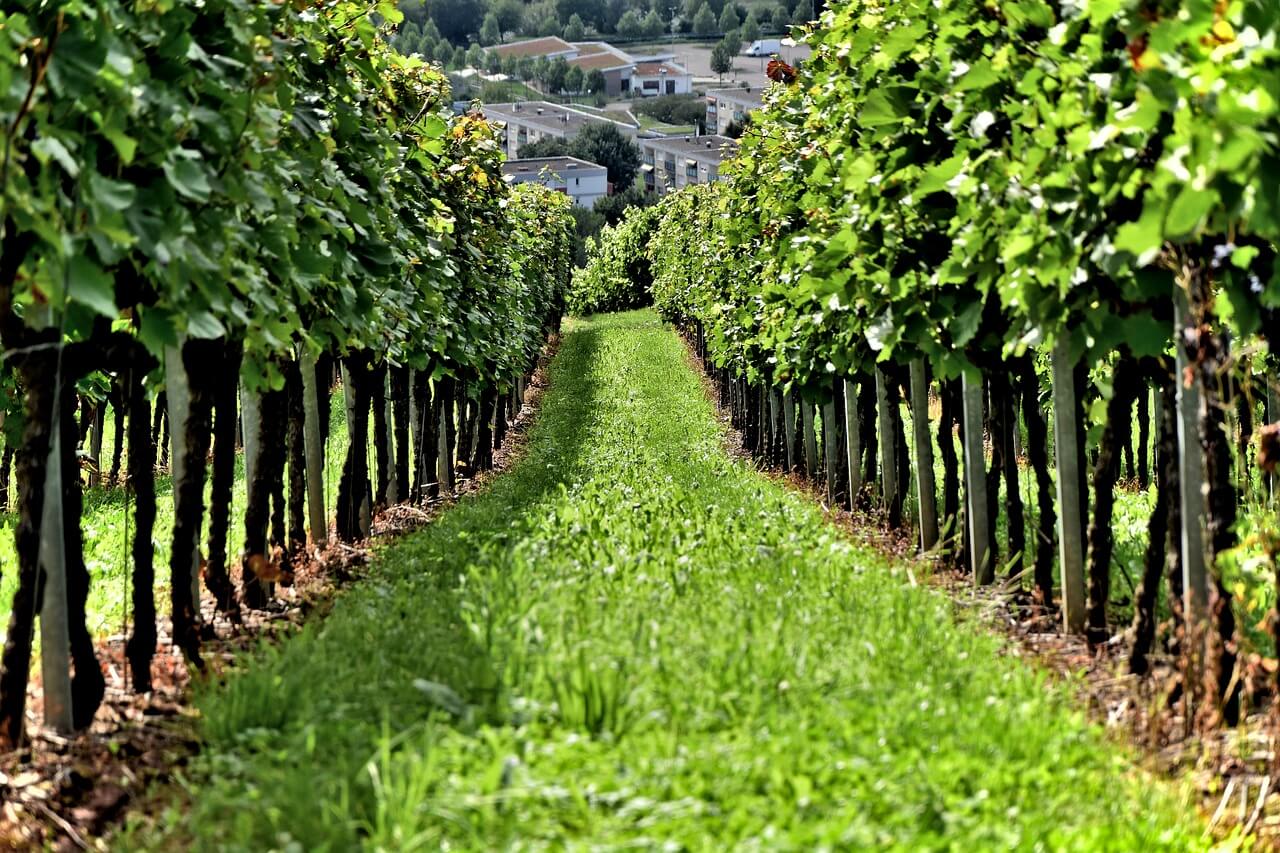Your Mini Basket

Organic Wine vs Natural Wine
Over the past 12 months, there has been an increasing demand from customers for natural and organic wines, and wines that are low in sulphites (to avoid those nasty hangovers!).
Over the past 12 months, there has been an increasing demand from customers for natural wine and organic wine, and wines that are low in sulphites (apparently in the hope of avoiding those nasty hangovers!). There has been a surge in people becoming more conscious about what exactly they are consuming and more and more people have turned vegetarian and vegan for health reasons. Considering we are in an era where horse meat was allowed into supermarket freezer foods, it seems only fair to want to know exactly what goes into our food and drink.
Because of this, organic and natural food and drink have become very popular and the wine industry is no exception. But what exactly is the difference between an organic wine and a natural wine, and do either of them contain sulphites or additives?
There is a lot of confusion between these industry terms but hopefully we can clear up some common misconceptions and give you the exact definitions of organic wine and natural wine.
Organic Wine
In order to be certified as ‘organic’ you have to comply with the strict rules and guidelines that are set by your country’s regulating body eg. Soil Association (UK), NOP (USA) or Agriculture Biologique (France). One of the most important regulations that you have to follow is that it is not permitted to spray herbicides or pesticides or any chemical products on the vines; only natural products can be used to help the grapes grow.
There are many other strict rules that must be followed in order for a wine to be labelled organic, and the organic certification process is often lengthy and costly. This leads us to think that organic wine is expensive, but this is not universally true.
In areas where climates vary drastically from vintage to vintage, winemakers have to invest in expensive non-synthetic pest-control techniques, which in turn affects the cost of the final product. However, in areas that have a reliable climate that is consistent from year to year, organic wine practices don’t have to cost much and that’s why organic wine can also be wallet-friendly. Try Tivoli Wines’ lovely organic Nero D’Avola from just £7.64!

Many people are also led to believe that all organic wines do not contain sulphites or additives, which is actually UNTRUE. Many of the Certified Bodies for organic wine actually permit the use of egg whites, yeast and animal products in processes such as filtering the wine. So not all organic wine is suitable for those strict vegans out there, best to check the label carefully if you’re unsure!
On the sulphites front, the EU regulating bodies DO allow sulphites in their organic wines, whereas in the US it is forbidden. But overall organic wines in general do tend to have lower levels of sulphites than your regular wines – more reason to drink up without the worry of a hangover, no?
Natural Wine
Although the term ‘natural wine’ is used readily within the wine industry, very few reliable and precise definitions of what exactly makes a wine ‘natural’ exist. We at Tivoli Wines tell our customers that natural wines are produced with minimal intervention from the winemaker or farmer. There are a handful of regulating bodies that certify wines as being ‘natural’, but they are not as extensive or detailed as those organic or biodynamic certifying organisations.
"If a wine is natural, does that mean it has to be organic?"
Not exactly...
While the certifying bodies prefer wineries to be organic in order to produce natural wines, it is not essential and they do not enforce this. They do however state that the yeasts used in the fermentation process should be natural and any additives avoided.
All grapes must be fresh and ripe, preferably handpicked and subject to minimum manipulation by the winemaker. It all does seem a bit vague. One key regulation for ‘natural wines’, that really does make a difference to the wine, is the lack of filtration. This is what makes some natural wines look cloudy, and they often smell a bit odd, like rotten eggs. The level of sulphites in natural wines is lower than your average wine, but sulphites are permitted.
So, why do people rave about natural wines if they are often cloudy, smelly and a bit mysterious? Natural wines have obvious health benefits due to the lack of interference by the winemaker and the minimal use of chemicals in their production.
Because of this, natural wines are believed to taste fresher and because none of the flavour qualities are removed during the filtration process, natural wines taste a bit different from regular, non-natural wines.

So we hope that you now understand the difference between the industry terms ‘organic wine’ and ‘natural wine’. We get that it can be tricky and that there are lots of similarities between organic wines and natural wines, but just be aware that they do not necessarily mean the same thing.
Organic wines are not always natural wines and vice versa, and they are not necessarily always vegan and vegetarian-friendly and low in sulphites. But there’s no need to worry as on our website we’ve made things easy for you and stated if our wines are suitable for vegans and/or vegetarians, low in sulphites, organic, biodynamic or natural so you always know exactly what you are buying.
Time to taste...
Take a good look at our range of organic wines and natural wines individually chosen by us at Tivoli Wines. After all this complicated and technical talk about organic and natural wine, we reckon it’s time for a glass or two!




